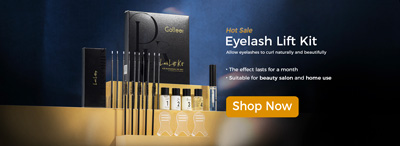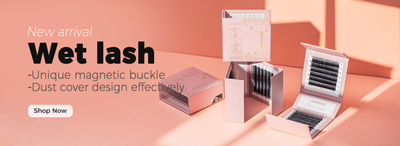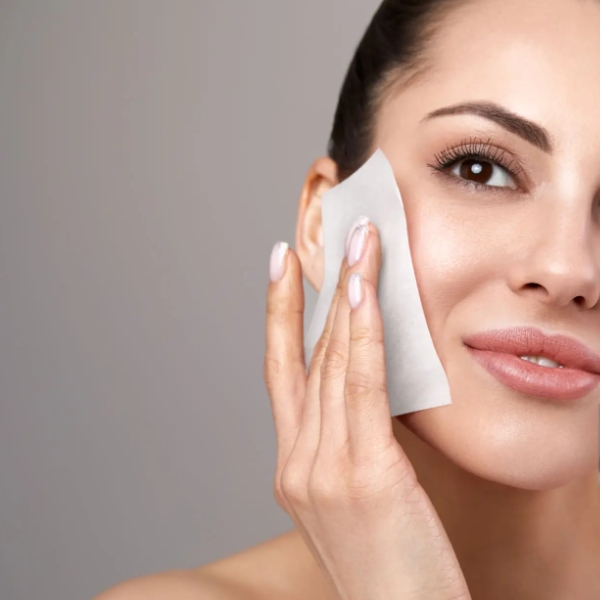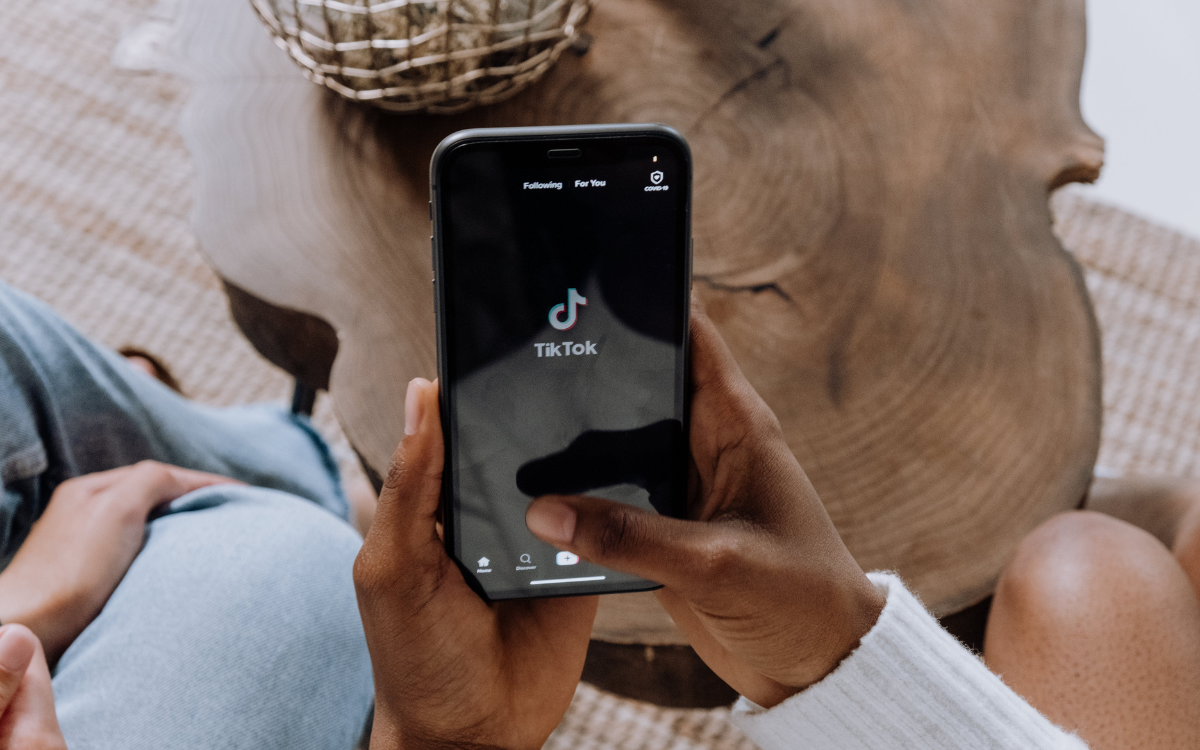There is no doubt that eye sensitivity can complicate your client's beauty routine and ban some products. Luckily, lash extensions do not have to be one of them!
If you are a good lash extension artist and you are having the right eye products, you can give your clients the lashes of their dreams without irritating their eyes or skin.
- 1 Clients with sensitive eyes.
- 2 Eyelash extensions glue irritates sensitive eyes.
- 3 Benefits of eyelash extensions for people with eye sensitivity.
- 4 Why eyelash extensions can irritate the eye?
- 5 Sensitive eyelash extension glue for clients with sensitive eyes.
- 6 How to choose the best eyelash extension glue for sensitive eyes?
- 7 The best eyelash extension glue for eyes with eye sensitivity
- 8 The people I warn about getting eyelash extensions.
- 9 Conclusion
So is it possible to get lash extensions if you have sensitive eyes?"
Like most things, the answer is "it depends".
It depends on where in the lash extension process you are getting sore and if your particular symptoms will allow you to keep your lashes for a long period if you have them. Let us dig a little deeper...
Clients with sensitive eyes.
if you have a client with sensitive eyes, there will probably already know this because they can water more than usual or become easily irritated when they use different beauty products, or cleansers or are around different types of vapors.
If your client has sensitive eyes, they can still get lash extensions BUT it depends on how sensitive they are. If they just can not handle anyone close to their eyes, lash extensions are probably out of the ԛuestion. However, if they are only mildly sensitive, it might be fine to embark on their lash extension journey.
Eyelash extensions glue irritates sensitive eyes.
A good lash artist will adhere clients' lash extensions to their natural lashes without letting the glue touch their eyes or lids. This application process makes lash extensions more comfortable for those with mild sensitivities, as no glue will touch their skin. For people with extremely sensitive eyes, fumes from regular eyelash extension glue can cause irritation, redness, or swelling. In these cases, eyelash extension glue for sensitive eyes is used to relieve discomfort and irritation.
Benefits of eyelash extensions for people with eye sensitivity.
With the correct Eyes Sensitive Eyelash Glue, most people with sensitivities will not experience irritation during or after their eyelash extension appointment. In fact, getting lash extensions can help them avoid using other irritating beauty products. They can skip daily eyeliner, mascara and removable false eyelashes, which can cause eye irritation. This means they will avoid daily irritants and save a significant amount of time on makeup and makeup application.
Why eyelash extensions can irritate the eye?
So why should putting lash extensions on top of natural lashes cause irritation?
These are some common reasons why putting a lash extension on top of natural lashes causes irritation.
Your client does not like anyone to get close to their eyes.
Self-explanatory, but if they just hate it when something is close to their eyes, then there is a good chance that even if they agree to the lash application, they will not be able to stop blinking or moving their face with each touch. This can also cause the eyes to water as an involuntary response to the glue not adhering properly, making the process much longer and leading to premature lash loss.
Your client may have an allergy to glue.
A good lash tech will never get glue on their client's eyes, so that shouldn't be a problem, BUT if they are allergic to lash glue, the fumes from the glue will cause their eyes to react...
The reaction can differ between people but can include itching, redness, swelling, and even a burning sensation. Sounds pretty bad, right? Obviously.
If they are worried about having a reaction to the glue, it is best to have a few drops put on their arm to see if they have a reaction.
In terms of the percentage of people, as an eyelash extension artist, you might see a reaction with only 1 in 200 clients, so it's certainly not common, and it's usually on the milder end of the spectrum with some redness. and mild itching. The reaction often goes away on its own within 24 hours, and taking an antihistamine seems to help (I'm not a doctor, so this isn't medical advice; always see a doctor if you have an allergic reaction).
Lashes can be getting applied incorrectly.
If you are an expert at lash extension, this will not be a problem, but not everyone is an expert!
The lashes should be applied about a millimeter from the eyelid so that they never touch the eyelid. The distance is so small that it is difficult to tell, but it ensures that there is no irritation.
The problem arises when an inexperienced lash technician or an extremely rushed lash technician applies lashes that actually meet the eyelid skin. The tip of the lash is like a little pin and when it digs into the eyelid it causes irritation, no matter if your client has sensitive eyes or not!
If this happens it will cause a lot of tearing, redness and possibly some swelling, so the best thing to do is remove the lashes.
Sensitive eyelash extension glue for clients with sensitive eyes.
There is a special sensitive glue that can be used but in my experience, the bond is not that strong so I don't recommend it unless the lashes are for a wedding or special event and you don't mind them lasting around a week instead of 3-4 weeks with normal eyelash extension glue.
If you have a client with a reaction to lash extension glue, they can either remove their lashes with olive oil (a slow process, which can be done at home and is chemical-free and not advisable), or come in for professional removal which takes longer and although much quicker, and can cause some irritation during the process.
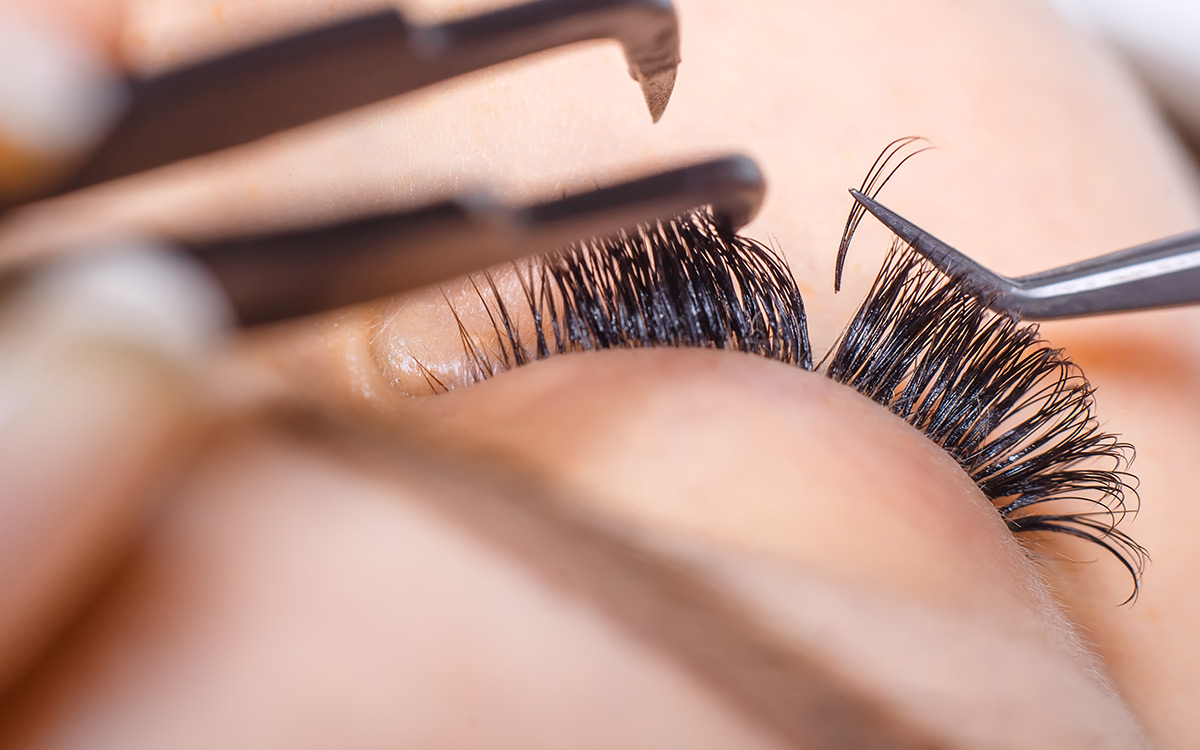
How to choose the best eyelash extension glue for sensitive eyes?
Choosing the best eyelash extension glue for your client with sensitive eyes is a very important part of the entire process as the wrong glue can cause real damage to your client.
Checklist No. 1. ingredients
Cyanoacrylate
The main culprit in allergic reactions to eyelash extension glue is a chemical called "cyanoacrylate," which is the primary ingredient for its ability to cure and adhere in all eyelash extension adhesives.
ALL eyelash extension glues on the market contain cyanoacrylate and currently, no substitute can replace its function.
However, something that not many people know is that there are many different types of cyanoacrylate. Not all cyanoacrylates deserve their bad reputation for causing allergies to eyelash extension glue.
The 5 different types of cyanoacrylate:
Methyl Cyanoacrylate: This is a toxic substance. This type of cyanoacrylate is strictly classified and is used for industrial purposes only. The methyl type is very strong and can dissolve proteins: when used in eyelash extensions, it leads to permanent vision loss. Methyl type should never be used in eyelash extension adhesive.
Ethyl Cyanoacrylate: Ethyl cyanoacrylate is the most commonly used type of cyanoacrylate for eyelash extension glue. Its dry time is fast and adhesion is strong, but smoke, odor and irritation can be quite strong.
Alkoxy Cyanoacrylate: Alkoxy Cyanoacrylate is an adhesive made to be extremely low in odor and smoke. This type of cyanoacrylate is eight times more expensive than the ethyl type and has rarely been used in eyelash extension glue due to its high price.
Butyl Cyanoacrylate: The butyl type is an adhesive made for hypoallergenic. It was originally developed for use in medical procedures. Compared with ethyl, the drying rate of butyl-C is slower and the adhesion is weaker.
Methoxy-cyanoacrylate: The methoxy type is the least irritating type of cyanoacrylate and is nearly odorless. It was developed to improve the problems caused by irritation and odor from Ethyl and Butyl type glues. However, its drying time is very slow and the adhesion is much weaker than other types of cyanoacrylate.
Mixing the right amount of cyanoacrylates in a bottle of glue to create a "perfectly balanced" adhesive that achieves low smokiness, fast drying speed and long retention is the ultimate goal of any eyelash extension glue manufacturer.
Latex
Latex (natural rubber) is known to cause allergic reactions in some people, so using glue that contains latex is not recommended. Instead, choose a glue that contains elastomer (synthetic rubber), such as Q-1 Glue, a lab-made rubber that does not cause allergy to latex but creates excellent viscosity, elasticity and retention.
Formaldehyde
Contrary to what many brands advertise, there is no "formaldehyde-free eyelash extension glue". Additionally, extremely low amounts of formaldehyde are naturally produced as the adhesive degrades over time.
The level of formaldehyde in some eyelash extension glue is not measurable as it might be below the lowest level detectable by laboratory tests measuring formaldehyde.
Checklist No. 2. Duration
Did you know that the shelf life of sensitive glues is shorter than that of normal eyelash extension adhesives? While strong eyelash glues last up to 6 months without being opened, the shelf life of the sensitive glue is much shorter: 3 months without being opened.
However, once you open the bottle, sensitive or not, any type of glue should be used within a month. Before you decide to buy 1 get 1 free offer, calculate how many customers you really need to serve with sensitive glue and don't overdo it.
Checklist No. 3. Adjustment speed (drying speed)
As you may have already noticed, the speed settings for sensitive glues are considerably slower than normal eyelash glues. There is a range of detection glue drying speeds from 5 seconds to 8 seconds. It is worth mentioning this to your customer for eyelashes in advance. Application time may be longer than typical applications due to the nature of the sensitive glue.
Checklist No. 4. Retention
The most sensitive adhesives are made with less or no ethyl cyanoacrylate and inevitably their adhesion is much weaker than "normal" glues.
When all the proper conditions are met (room/product conditions, correct technique, health and condition of the client's lashes and subseԛuent care), extensions can last for up to 3 weeks. This may be shorter than your client's expectations and is something you should discuss with your client beforehand.

The best eyelash extension glue for eyes with eye sensitivity
Buying new eyelash extension products can be tricky. And specialty products, like the best eyelash extension glue for sensitive eyes, can be the most complicated. However, knowing more about the products and glue you are looking for can help point you in the right direction. Use this checklist as a guide to narrow your search and determine the best eyelash extension glue for sensitive eyes!
Forabeli Glue for eyelash extensions
Forabeli Eyelash Extension Glue got top marks from Amazon reviewers for its ease of use and strong, long-lasting bond. Several buyers have described its hold as the "best" they have ever seen in eyelash glue. The formula dries within three seconds of application and can keep lashes locked in for up to six weeks. On its ingredient list, you will find ethyl cyanoacrylate as the primary adhesive, rather than the stronger methyl cyanoacrylate.
Transparent glue for Cici Lash Diamond eyelash extensions
If you want a faster-drying eyelash extension glue, this formula dries in just two seconds. As a bonus, the manufacturer specifies that it can stay up to seven weeks. According to the list of ingredients on Amazon, the formula contains two ingredients, ethyl cyanoacrylate and PMMA, and does not include latex, formaldehyde, carbon black and, of course, methyl cyanoacrylate.
LORIS Eyelash Extension Glue
Unlike the options above, LONRIS Eyelash Extension Glue dries to an inky black, which can add the illusion of thicker lashes. However, this means that it is formulated with carbon black. To reduce the risk of irritation, perform a patch test before use on clients. Otherwise, this glue is marketed for people with sensitive eyes, and self-styled lash professionals have reportedly used it on their clients with no problems. Ethyl cyanoacrylate and PMMA appear in the ingredient list, but this formula does not include latex or formaldehyde. It has the slowest drying time on this list of up to four seconds, and with proper care, it can last up to six weeks.
Tips when lashing someone with sensitive eyes
1) First of all, take some time to do a patch test to make sure your client is suitable for treatment. A patch test is a small version of treatment to ensure there are no serious reactions to any of the products you are using.
2) If your client is eligible for treatment but is sensitive during treatment, you should check to see if the gel pads or under-eye tape may be causing discomfort.
3) If your client appreciates the treatment but has bloodshot eyes immediately after treatment, the eyes may not have been completely closed during treatment.
Yes, this happens mainly when clients talk a lot during the application and there are also some clients who cannot close their eyes completely, so check if this is the case.
4) If all is well overall, but your clients notice a slight reaction after treatment, it could be a slight sensitivity to any of the products or fumes that develop as the adhesive cures.
The most logical thing would be to change the adhesive to a smoke-free, odorless, SENSITIVE adhesive, specially designed to help customers who may experience a slight reaction.
5) Another option would be to use a nanometer immediately after application. The ultra-fine mist helps the adhesive cure faster and therefore eliminates vapors which have been shown to be particularly good for sensitive clients. You can also wash your lashes with the Eyelash and Brow Cleansing Shampoo which helps speed up the curing of the adhesive and is helpful for sensitive clients.
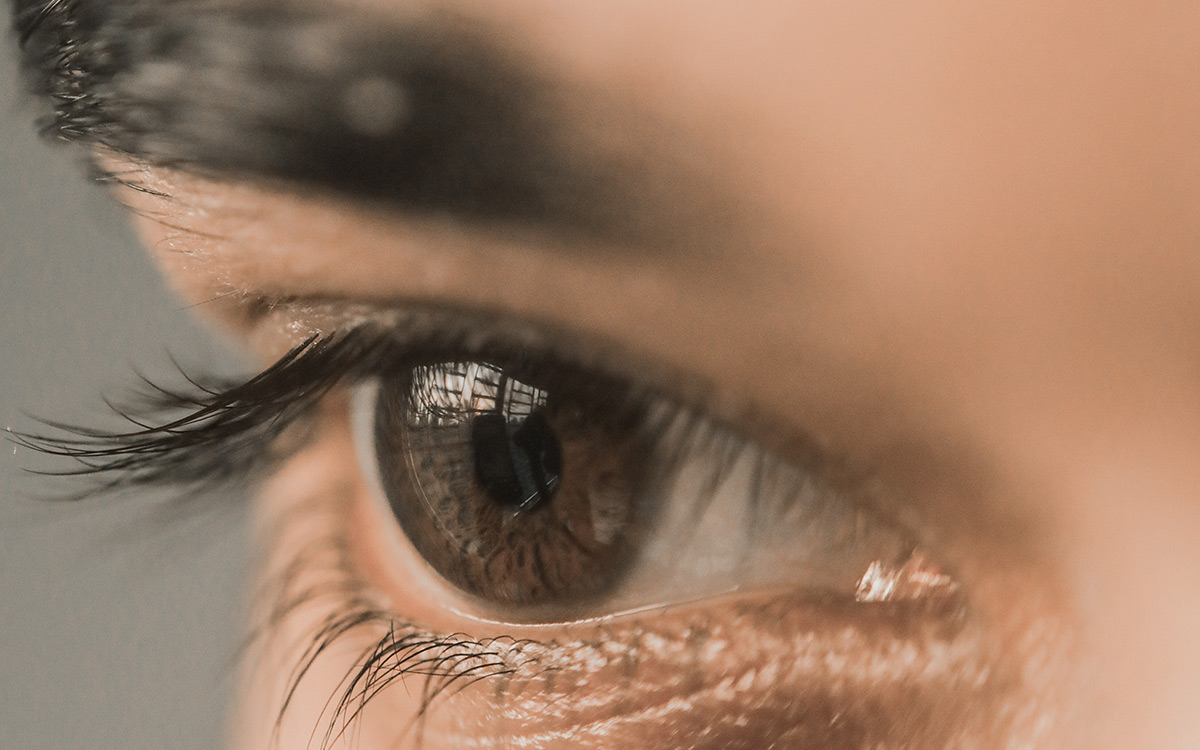
The people I warn about getting eyelash extensions.
If your clients are part of a group where their eyes water too much, getting lash extensions is probably not a good idea. While it doesn't cause them any discomfort, the water in their eyes will wet their lashes and cause the glue to not work properly, so expect higher lash fall than usual, which is obviously not ideal and will cost them more money in the long-term
If they are allergic to glue...
Not recommended, BUT if they know it will only be minimal and they are happy to wait for the reaction symptoms to subside, then by all means take the tabs.
Conclusion
Eyelash extension artists are trained to protect the health of their client's eyes, skin, and lashes. With their expertise and use of gentle lash extension products, even those with sensitive eyes can experience the luxury and comfort of lash extensions.
If you have a client with sensitive eyes, the decision to get lash extensions is up to them and them alone, just make sure they are aware of the risks and give them your professional assistance.
It is important as a lash artist for your client to let you know if they have any eye sensitivity so that they can get the best advice. You should advise them on steps to take to relieve sensitivity and reduce the chances of irritation.


